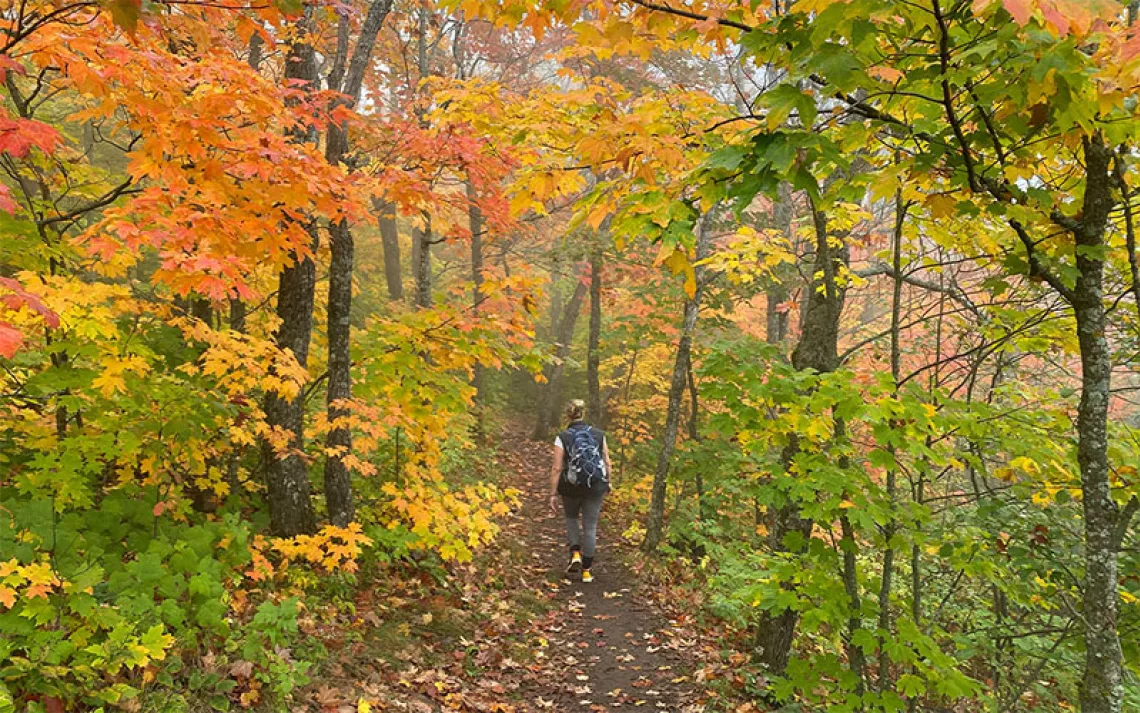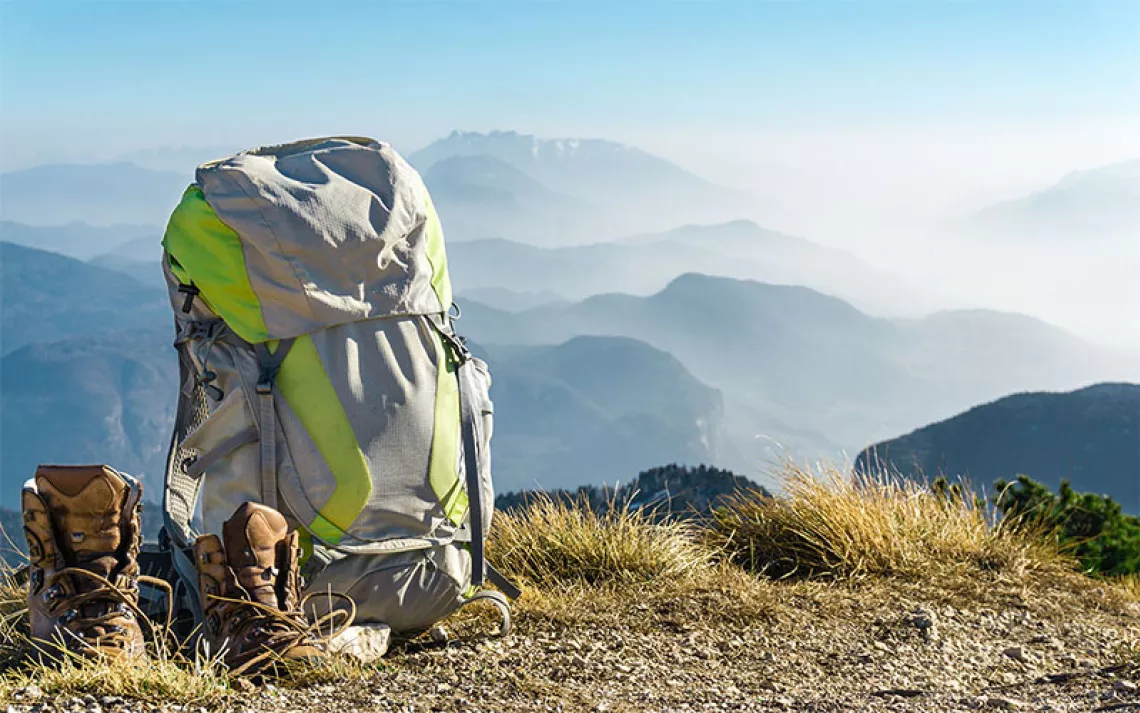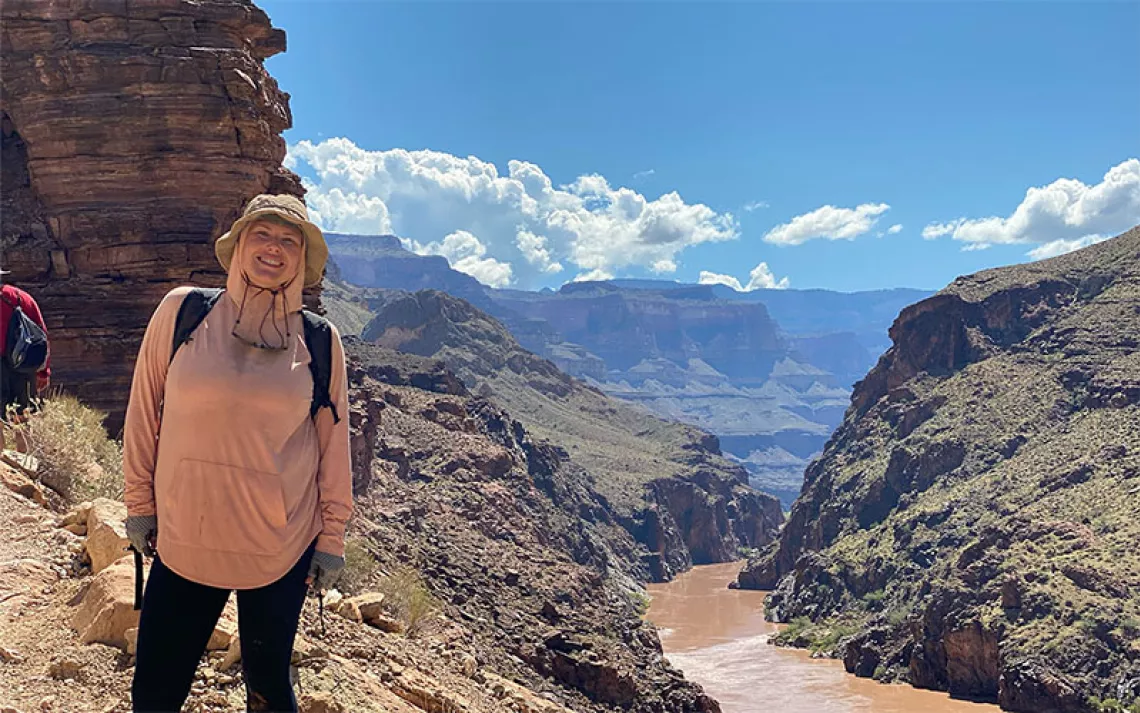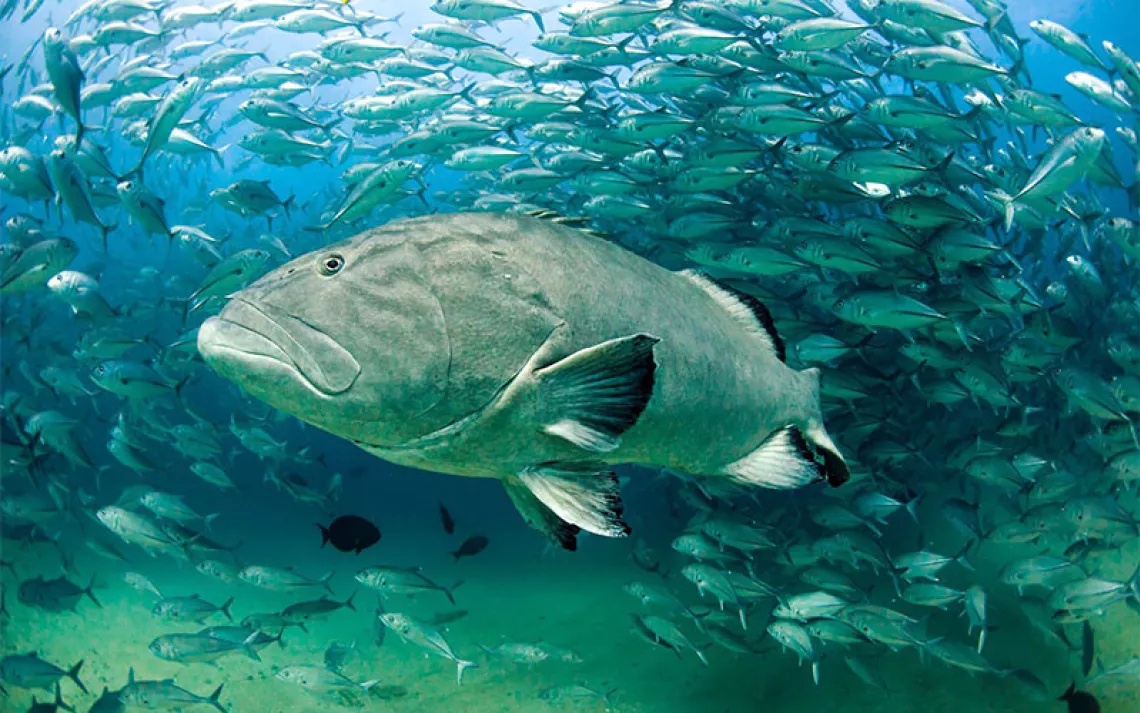When Politics Get Them Down, These DREAMers Go Camping
The outdoors doesn’t care whether you have papers
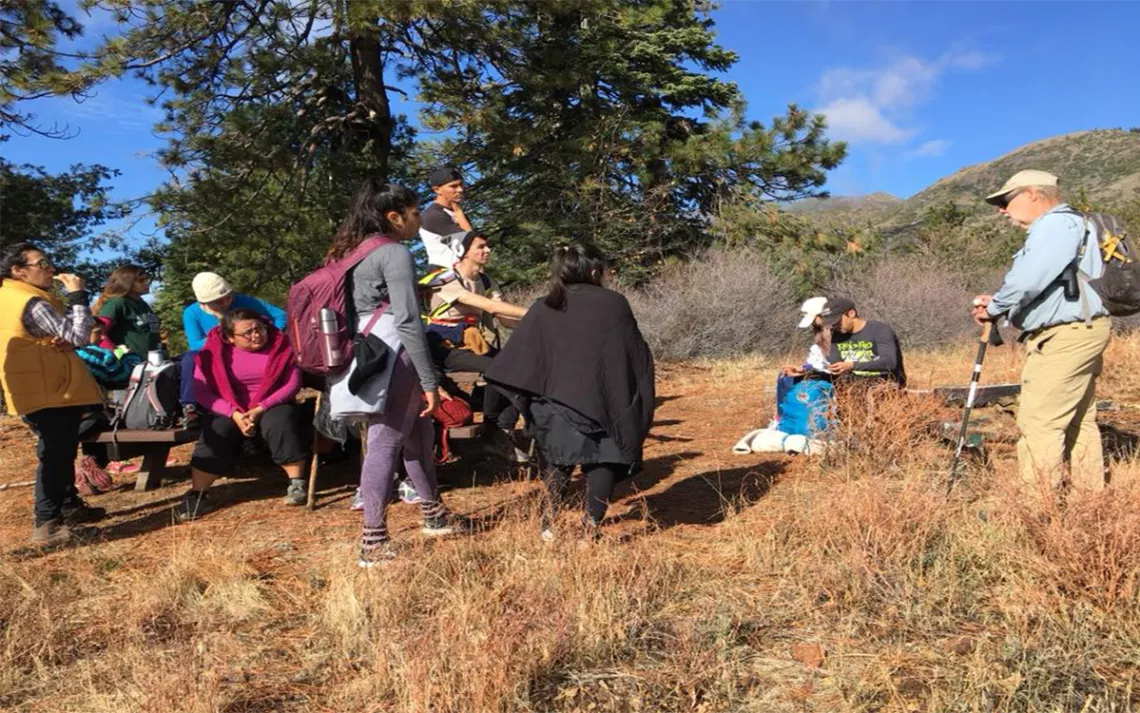
Photo courtesy of Bob Schneider
On November 10, in the Sacramento Valley Station parking lot, 14 teenagers and young adults piled into two white vans and embarked on an unusual adventure, at least for them. The participants were DREAMers—immigrants brought to the United States as young children without documentation.
Their destination was Berryessa Snow Mountain National Monument in Lake County, California. Over the next three days, the 18-to-27-year-olds camped along Bear Creek and hiked through Summit Springs in the Mendocino National Forest. They arrived to clouds, fog, and drizzling rain. “Blue skies are totally overrated,” says Bob Schneider, chaperone, senior policy director, and volunteer with Tuleyome, a nonprofit conservation organization based in Woodland, California.
The trip was the result of a unique collaboration between Tuleyome, Alianza—a nonprofit that works with the undocumented immigrant community in Northern California—and the Sierra Club’s Mother Lode Chapter. Its goal was to help the participants connect and find respite from the ongoing stress of the current political climate and the uncertainty surrounding their status.
On September 5, President Donald Trump announced that he was terminating the Deferred Action for Childhood Arrivals program (DACA), which was established by President Obama and protected approximately 800,000 people from deportation. It’s now up to Congress to pass an alternative (Democrats are currently threatening to withhold support for a spending bill that must pass by Friday unless Congress establishes the legal right of DREAMers to stay in the United States).
But the trip was also just a chance to get outside and experience nature. Nearly half of the group had never camped before. A report by the University of Wyoming found that only one in five national park visitors in the United States is nonwhite, and one in 10 is Latinx. “If we’re really going to protect our public lands and the future, the people who use public lands have to represent the demographics of California,” Schneider says.
Marisela Hernandez, who led outreach for the trip, is a coordinator for Alianza and a DACA recipient herself. She says she has always known about the lack of resources for the undocumented community, so when she was approached by Dyane Osorio from the Sierra Club about creating a camping trip for Latinx students, she suggested concentrating on undocumented youth in the Sacramento area.
One of the oldest participants was Christian Ruiz, who was born in Jalisco, Mexico, and immigrated to the United States in 2004 at the age of 14. He now lives in Dixon, California, and works as a biochemist. “Even though I hike a lot, this was something different,” he says. “[The trip] was really relaxing—kind of emotional at the same time because we became really close. We’re in the same boat—we are DREAMers. We know the struggle.”
For Ruiz, the trip was definitely a mental break from the constant threat of deportation and anti-Mexican sentiment. “It’s important that we know what is happening with immigration and get a bit of relief from it,” Ruiz says. “It’s also important to be aware of what we have outside and not just in our towns—the national parks are right there for us.”
Unlike other participants, Ruiz hikes a lot, but being outdoors with other DREAMers was something new. “This was the first time that I actually saw people of color, DREAMers, undocumented people, go into the woods,” Ruiz says. “It was exciting to see people of my race or of the same ethnicity go hiking and camping.”
“It was definitely a different group when we left on Friday than when we came back on Sunday,” Hernandez says. “They were talking about how they want to go back with their families and take their little brothers and sisters camping. Some were talking about future hikes among the group."
By the end of the trip, the group had clearly bonded. On the way back to Sacramento, everybody wanted to ride in the same van, and they were busy planning ways to continue supporting each other. They created a social media group and drive to share resources with each other.
“It’s a really difficult time for the undocumented community—there’s a lot of uncertainty,” Hernandez says. “We’re all struggling. However, we are strong, and we have each other as a group. Staying connected is definitely what’s going to make the difference for all of us.”
 The Magazine of The Sierra Club
The Magazine of The Sierra Club
